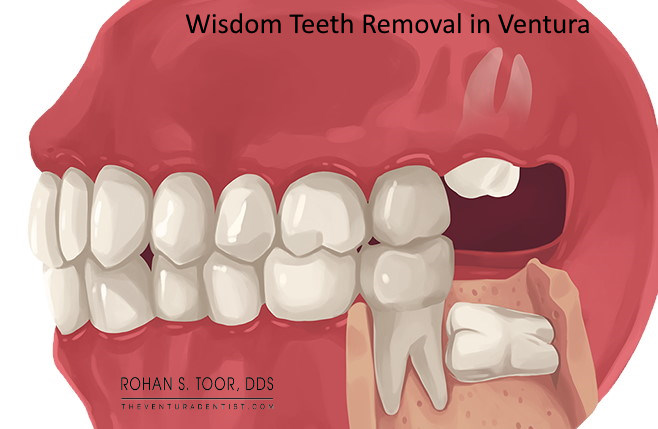Exploring Various Sedation Options for a Comfy Knowledge Pearly Whites Removal Experience
The use of sedation throughout such treatments has become progressively typical to minimize anxiety and discomfort. With a variety of sedation alternatives readily available, from regional anesthesia to basic anesthesia, each method offers varying degrees of relaxation and discomfort control.
Regional Anesthetic
Regional anesthesia is a typically utilized technique for numbing particular locations of the mouth throughout wisdom teeth removal procedures. By carrying out a regional anesthetic, such as lidocaine, a dentist can guarantee that the patient continues to be comfortable and pain-free throughout the removal process.
One of the key benefits of local anesthesia is its targeted numbing impact, which implies that only the certain location being treated is affected. This localized technique minimizes the threat of systemic negative effects and permits a quicker recuperation post-procedure. In addition, local anesthetic is taken into consideration to be a routine and safe technique in dental care, with very little threats included when provided by an experienced specialist.
Nitrous Oxide
Nitrous oxide, generally recognized as giggling gas, is a kind of sedation typically utilized in dentistry to aid patients kick back throughout oral treatments. This sedation option permits the individual to remain mindful and receptive throughout the procedure while really feeling at convenience and comfortable.
Furthermore, laughing gas is understood for its rapid recovery time. Once the mask is gotten rid of, the impacts of the gas wear away promptly, enabling clients to resume their regular tasks without lingering sedative impacts. This makes nitrous oxide a convenient option for those who need to drive themselves home after the dental appointment. Nitrous oxide is ideal for people of all ages, making it a flexible sedation choice for knowledge teeth extractions and various other dental treatments.
Dental Sedation
Oral sedation, a pharmacological technique used in dental care, entails the administration of sedative medicines by mouth to generate a kicked back state throughout oral treatments. This type of sedation is commonly made use of for individuals undergoing wisdom teeth extraction to ease anxiousness and discomfort. The medicines recommended for oral sedation come from a class of medicines called benzodiazepines, which have sedative, anxiolytic, and amnesic residential properties. Generally, the patient takes the prescribed medication before the procedure, enabling ample time for the sedative results to take hold.
Unlike intravenous sedation, dental sedation does not call for needles or injections, making it a more comfy alternative for people with a fear of needles. In addition, oral sedation is taken into consideration efficient and safe when administered by qualified dental specialists.
IV Sedation
Carried out intravenously by skilled physician, IV sedation is an effective technique made use of to generate a controlled state of deep leisure and unconsciousness throughout dental procedures. Unlike dental sedation, which can be uncertain in its effects, IV sedation enables specific control over the level of sedation, making it an excellent selection for complex treatments like knowledge teeth removals.
During IV sedation, a sedative medicine is provided directly right into the bloodstream through a capillary, enabling it to take result quickly and effectively. This technique makes sure that the person remains unaware and comfortable of the procedure while still maintaining vital features such as breathing and heart price.
One of the main advantages of IV sedation is its capacity to give a much deeper degree of sedation compared to other techniques, making it especially suitable for people with high degrees of anxiousness or those undertaking substantial oral work (wisdom teeth removal aspendale). Additionally, the results of IV sedation commonly diminish progressively after the treatment, reducing the possibility of grogginess or lingering adverse effects. In general, IV sedation supplies a secure and effective alternative for making sure a comfy and trouble-free experience during wisdom teeth removal

General Anesthesia
Having discussed the benefits of IV sedation for wisdom teeth removal, the usage of general anesthesia gives an alternate choice for people calling for a much deeper level of unconsciousness during dental procedures. General anesthesia generates a controlled state of unfamiliarity, ensuring the individual feels no pain or discomfort during the extraction process. This method is especially useful for individuals with serious oral anxiousness, complicated medical requirements, or those undertaking multiple extractions at the same time.
General anesthetic is carried out by a trained anesthesiologist that very closely checks the person's essential indications throughout the treatment. It involves making use of intravenous drugs or breathed in gases to cause a state of unfamiliarity. While under this page general anesthetic, the person will certainly not be aware of the surgical procedure, experience any kind of discomfort, or have any kind of recollection of the treatment later.
Although general anesthesia is secure when carried out by certified professionals, it brings a somewhat greater threat contrasted to other sedation alternatives - wisdom teeth removal aspendale. People considering general anesthesia for wisdom teeth extraction must talk about the possible threats and advantages with their dental professional or oral cosmetic surgeon to make an informed choice based upon their individual requirements and case history

Conclusion
In verdict, different sedation alternatives are offered to ensure a comfy knowledge teeth extraction experience. Oral sedation and IV sedation deal much deeper degrees of leisure, depending on the patient's demands.
Nitrous oxide is appropriate for clients of all ages, making it a versatile sedation option for wisdom teeth extractions and various other dental procedures.
